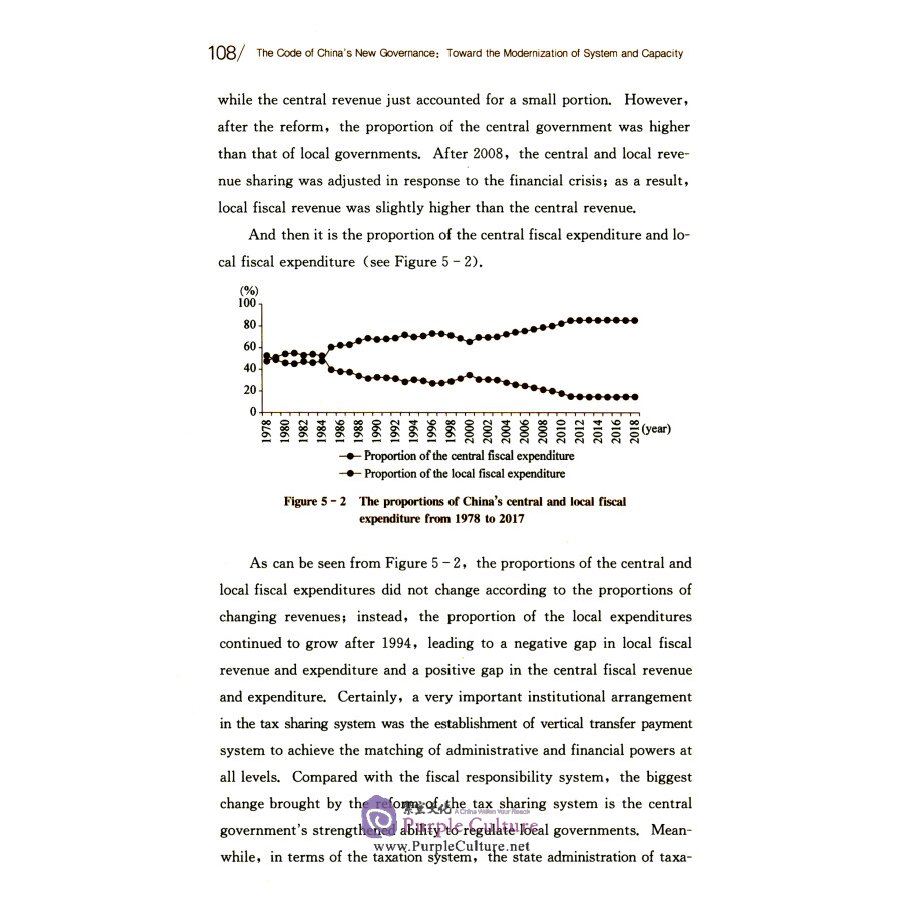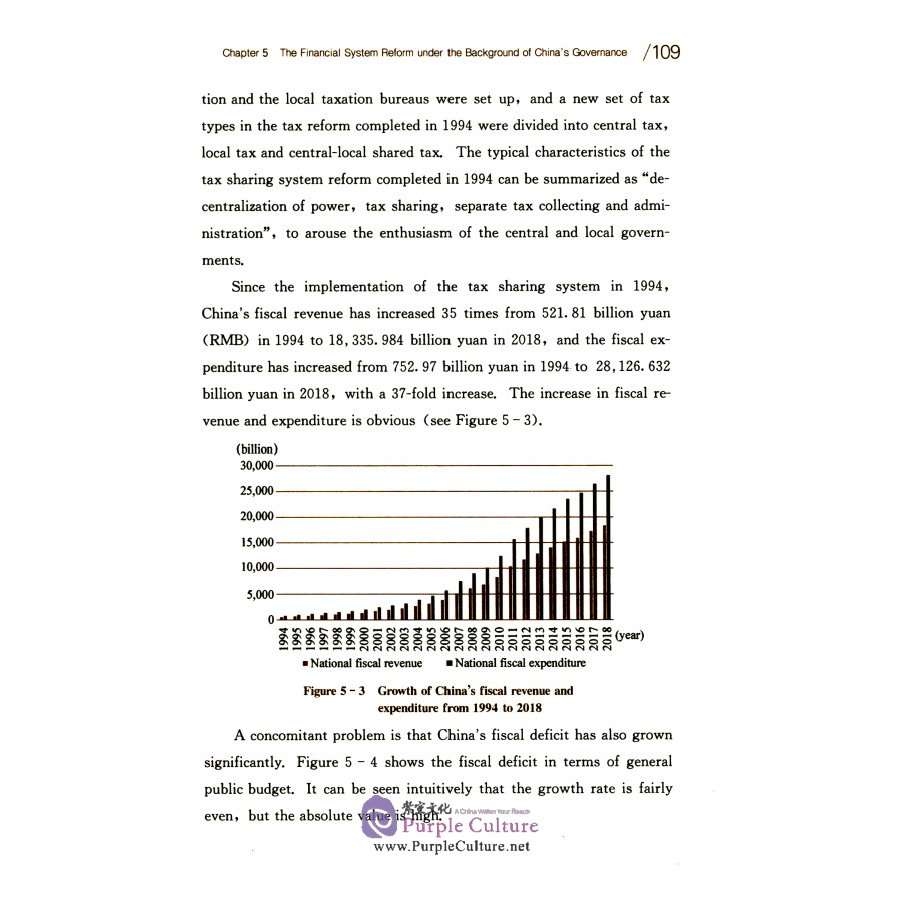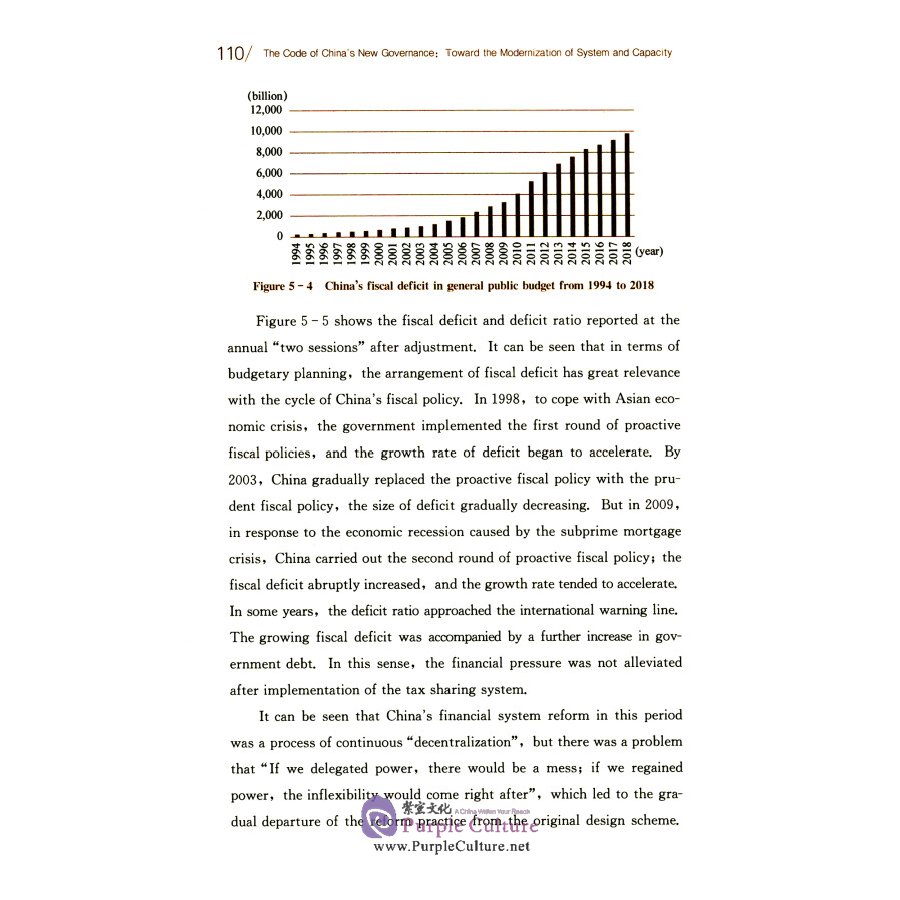Details
What are the features of China's national governance in terms of its institutional design? How does China organically integrate the Party, government agencies and diverse stakeholders such as market entities and social organizations to form the governance pattern of "pluralism under one core" and consultative co-governance? How does it fulfill the people-centered idea in all fields and at all levels of national governance? Focusing on those issues, this book analyzes a number of important aspects of China's national governance, including institutional building, administrative system, economic governance, social welfare, social governance, emergency management, ecological civilization, and governance tools. Adopting perspectives of public administration, political science, economics and other disciplines, this book puts forward many new ideas and concepts. It is a key to understanding the "governance of China".
About Author
Yang Kaifeng, Distinguished professor and the executive dean of the School of Public Administration and Policy, Renmin University of China. He serves as the secretary general of the Public Administration Review Group under the Academic Degrees Committee of The State Council, as well as the secretary general of the National MPA (Masters of Public Administration) Education Steering Committee. He is also the editor-in-chief of Public Performance and Management Review and Public Administration and Policy Review.
He has long been engaged in' research and teaching on public administration, and has widely published in the areas of public governance, performance management, administrative reform, and public organizational theory, among others. He has published a number of books (monographs) in Chinese/English, such as The Code of China's New Governance: Toward the Modernization of System and Capacity, Coordinated Implementation of Policies: Public Health Governance after the Epidemic, Handbook of Research Methods in Public Administration, and International Handbook for Practice-Based Performance Evaluation, etc.
Table of Contents
Chapter 1 Putting Institutional Building in a More Prominent Position of National Governance
1. Institutional logic of national governance
2. Overall logic of institutional building
3. Development logic of institutional building
4. Organizational logic of institutional building
5. Evaluation logic of institutional building
6. Constitutional logic of institutional building
7. Operational logic of institutional building
8. Behavioral logic of institutional building
9. Reform logic of institutional building
Chapter 2 Construction of the "Four in One" Administrative System with Chinese Characteristics
1. One integration: To build a service-oriented government to satisfy the needs of the people
2. Integration of administrative organization
3. Simplification of administrative process
4. Efficiency of administrative methods
5. Decentralization of administrative relations
Chapter 3 The Government Governance System of Ensuring Well-Defined Responsibilities, Law-Based Administration and Satisfying the Needs of the People
1. Well-defined responsibilities are the premise of governance
2. Administrative system and organizations are the subject of government governance
3. Law-based administration is the inherent requirement of government governance
4. To satisfy the needs of the people is the aim of government governance
……
Chapter 4 Some Issues on Modernization of China's Economic System and Capacity for Governance
Chapter 5 The Financial System Reform under the Background of China's Governance
Chapter 6 Innovating the Governance of Mega-Cities and Promoting the Livelihood System for Protecting both Urban and Rural Residents
Chapter 7 Reform of China's Social Security Governance
Chapter 8 Guiding the Healthy China Construction with the Spirit of the Fourth Plenary Session of the 19th CPC Central Committee
Chapter 9 Collaboration, Participation and Common Interests: The Chinese Approach to Social Governance in the New Era
Chapter 10 Stimulating the Vitality of Community-Level Society and Building a "Social Governance Community"
Chapter 11 Institutional Demand and Action Path for Social Governance Modernization
Chapter 12 Methodological Exploration of Municipal Social Governance in China
Chapter 13 Building an Emergency Management System with Chinese Characteristics for the New Era
Chapter 14 Institutional Building of Ecological Civilization in the New Era
Chapter 15 The Instrumental Basis of China's Governance
Sample Pages Preview



 Preface
Preface
The Decision of the Central Committee of the Communist Party of China on Some Major Issues Concerning Upholding and Improving the System of Socialism with Chinese Characteristics and Advancing the Modernization of China's National Governance System and Capacity (referred to as The Decision)adopted at the fourth plenary session of the 19th Central Committee of the Communist Party of China(CPC)is a continuation and deepening of the series of decisions and spirit of the Central Committee of the Communist Party of China on deepening the reform since the Party's 18th and 19th National Congresses, which points out the direction for the further development of the world-class national governance theory and practice with Chinese characteristics. The Decision further clarifies the connotation, extension and conceptual system of national governance. Dissimilar to the mainstream of the Western governance theory that presupposes a Western model, The Decision indicates that China's national governance is first and foremost great socialist practice as well as the result of history and people's choice. It has distinct Chinese characteristics with highlighting the nationality, historicity, people's nature and politics of national governance and emphasizing thirteen significant advantages of China's national governance. At the same time, The Decision regards China's system and capacity for governance as the representation of a country's basic system and its implementation capacity. It also makes a comprehensive, scientific and systematic definition of national governance under the guidance of the Marxist methodology. The theoretical system embodied in The Decision is rigorous, comprehensive and systematic, reflecting the latest achievements in the development of philosophy and social sciences, drawing upon the advanced experience from the development of other countries, summarizing the successful practice of China's socialist construction as well as achieving a high degree of unity of universality and particularity.



